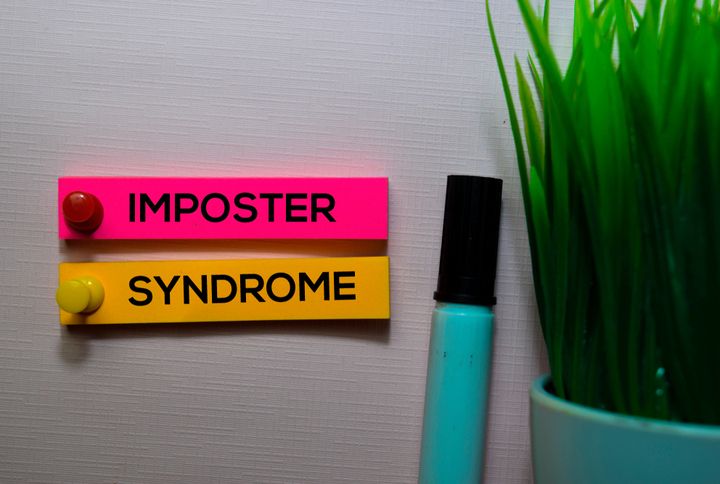Have you ever felt like you didn’t deserve your success? That you got to where you are solely based on good luck and happy coincidences? Are you scared that people will discover that you don’t have any real skills and are a fraud? Do you have sleepless nights freaking out about taking on more responsibility or getting promoted at work because you know you’re really talent-less? If you too are a ball of self-doubt and find yourself undeserving of your accomplishments, no matter their size, chances are you could have Imposter Syndrome.
Defined in the 1970s, Impostor syndrome refers to an internal experience of believing that you are not as competent as others perceive you to be. Basically, you feel like a complete phoney. While initially, it was said to affect successful women only, it is now said to be experienced by everyone, regardless of gender and social status.
Why Do We Really Experience Imposter Syndrome?
There are multiple reasons one experiences Imposter Syndrome. It can stem from personality traits or external surroundings. According to this article by Very Well Mind, if a person is inclined towards social anxiety, neuroticism or perfectionism, they may fall victim to Imposter Syndrome. They may constantly doubt themselves and feel pressured to deliver nothing short of 100%. Similarly, a person’s environment and past experiences can also play a role. If someone has grown up in a highly critical family (or in our case in constant awe of “Sharma Ji ka beta“) or felt constantly overshadowed by others’ achievements (we’re back to “Sharma Ji ka beta“), can experience it. Certain events such as starting fresh at university or being promoted at work can trigger it as well. The sudden change makes you doubt whether you belong there and can lead to all sorts of self-sabotage.

Common Signs Of Imposter Syndrome
According to this article by Very Well Mind, some common symptoms are:
- You are in constant self-doubt about anything and everything you do.
- You attribute your accomplishments to luck.
- You bend backwards and burn out just to prove your worth (even when you don’t need to)
- You always fear that you won’t live up to others’ expectations.
- You set unreal goals for yourself and then berate your abilities when you cannot meet them
- You sabotage your success because you think it’s fake and you don’t deserve it.
- You overprepare for things and when you deliver the results, you link it to your over preparation, creating a vicious cycle. For instance, if you have a small presentation at work, you prep for it the entire night to make sure every single detail is perfect. When your presentation does well, you feel it’s only because of the all-nighter you pulled, and not your intelligence. Hence, before any presentation, you make it a point to stay up all night. This is highly toxic!
When these symptoms go unchecked, they can snowball into depression, paranoia, hysteria, eating disorders and worse.

Types Of Imposter Syndrome
Valerie Young, an expert on Imposter Syndrome and author of The Secret Thoughts of Successful Women, has identified five types of “Imposters”. They are:
1. Perfectionists
They strive for utmost perfection and if they accomplish 99% of their goals, they will focus on the 1% they missed rather than the 99% the accomplished. They set unrealistic goals and find faults in themselves when they don’t meet them.
2. Experts
They need to know every single piece of information before taking on a project. They will run themselves dry studying and learning new abilities. They never feel like they’re good enough and always strive to learn newer skills and get certifications.
3. Natural Genius
They are quick to accomplish their goals and used to learning new skills easily. However, when they struggle or are unable to do something, they feel like a fraud and berate their innate talents.
4. Soloists
They prefer to work alone and deem asking for help as a sign of weakness. They reject any assistance and instead often burnout on their own.
5. Superheroes
They constantly feel insecure and inadequate and hence go above and beyond what is expected (and also needed). They spread themselves out too thin to feel accomplished, leading to a mental collapse.

Effects Of Imposter Syndrome
Suffering from Imposter Syndrome can lead to many harmful effects which can cumulatively break a person from within. According to this article by Medical News Today, some of these are:
- Constant overachieving.
- Avoiding promotions and responsibilities because you feel you don’t deserve them and will fail miserably if you take them on.
- Daily burnouts due to overworking yourself to try and be the best and shed your “fraud” impression
- Intense self-depreciation, feeling of shame and sometimes self-hatred too.
- Having an “I’m Just Lucky” mindset and being unable to internalise your real skills, hard work and talent.
- Mental illnesses like depression, anxiety, paranoia, hysteria, eating and sleeping disorders.

Imposter Syndrome is tricky but it can be overcome. Stay tuned for how one can cope with this and defeat it once and for all.
What are your thoughts on this? Share it with us in the comments below.
Join Girl Tribe by MissMalini on Facebook and Instagram to be a part of more fun conversations!

